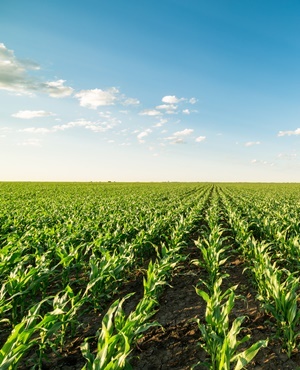
The raging national debate about whether or not to expropriate land without compensation has over-shadowed other important developments in the political economy of agriculture.
The debate must be settled through a sensible, workable solution. It must lead to what President Cyril Ramaphosa has promised: increased production, ensured policy certainty and guaranteed food security.
But there are other important policy issues in the agricultural sector that need to be tackled. Listening to some of the debate hosted by Nation in Conversation at the Nampo Harvest Day agricultural show in Bothaville this week, I could not help but take note of the issues that underpin a big divide in South Africa's agriculture.
First, black South Africans are trapped in dead assets while whites have liquid assets. The assets in the possession of blacks are communal plots over which the nominal owners have no property rights and therefore can neither sell to raise capital nor dispose of the land if they wish to.
On the other hand, white farmers are able to secure debt on their land or sell the whole or part of it as they wish. It is evident that the communal system is an ancient relic no longer suitable in the modern era. Black people want the economic freedom that white people enjoy to use their assets to grow wealth.
If the Economic Freedom Fighters were serious about true economic freedom, they would not be advocating for moving black people from one system of chieftain communal land ownership to a sophisticated version of the same thing in which the state replaces the chiefs.
The common denominator in both communal and state ownership is that they deny citizens the right to own, trade, invest and utilise their property. The reason white farmers are opposed to nationalisation of land is not only because they have land – and a lot of it – to protect. But it is also the fact that revoking ownership would mean a huge regression in their economic development.
The communal system has given black people a double status: they are both citizens and subjects at the same time. The two concepts are inherently at odds. As citizens, they are theoretically free to exercise economic choices as well as political choices. But as subjects, their democratic rights as well as their economic rights are curtailed. This bifurcation of status must come to an end.
Second, while small holder communal farmers grapple with low productivity by using ancient methods that are no longer suitable in the environment of climate change, soil erosion, transnational ailments and other factors, commercial farmers are talking about auto agriculture.
Drones are being unleashed on commercial farms. There is even talk that by 2035, South Africa should adopt satellite farming using technologies pioneered by the likes of US-based South African tech-entrepreneur Elon Musk. Companies like Vodacom and John Deere are developing applications that would enhance interactivity on farms. Meanwhile, Monsanto and others are advanced in genetic editing to improve productivity.
Third, we have a situation where being small is necessarily black and being big and commercial is necessarily white. Should the land debate be settled the wrong way, there is a real possibility that many black farmers might never reach the status of their white commercial counterparts.
Fourth, access to markets is another big issue. Cut off from global supply chains, isolated by poor infrastructure and cartels, and victimised by corrupt government officials, black farmers can only supply small markets. It's almost as if they remain subsistence farmers with only a semblance of commercialisation.
Fifth, commercial agriculture is a boys' club industry. Notwithstanding the fact that hundreds of thousands of African women have worked the subsistence and commercial fields for years, they are nowhere their male counterparts in terms of land ownership, wealth and status. The gender divide, which is reflected at Nampo, must be confronted.
Lastly, the racial profile of Nampo exhibitors – the local and international suppliers of agricultural machinery, agri-bankers, breeders and so on – as well as the visitors, make it plain that black people have a long way to go. While the commercial sector of agriculture is busy leaping forward with the Fourth Industrial Revolution and fighting for global market share with the assistance of our government, many black people in rural areas are stuck in ancient chiefdoms.
It's unfair and something must be done. The starting point is that black people must graduate from the status of subjects to being full citizens. This urgent and massive transformation will affect millions of people across the country.
If this transformation is set in motion now, any additional land the state might acquire from commercial farmers through whatever redistribution mechanisms will help boost black people's fortunes directly. Neither the state nor chiefs should be the beneficiaries of redistribution. In that way, Ramaphosa's intentions might not sound like a pipedream.
- Mkhabela is a political analyst with the Department of Political Sciences at the University of South Africa. He was a participant in the Nation in Conversation debates at Nampo Harvest Day.
Disclaimer: News24 encourages freedom of speech and the expression of diverse views. The views of columnists published on News24 are therefore their own and do not necessarily represent the views of News24.




 Publications
Publications
 Partners
Partners























